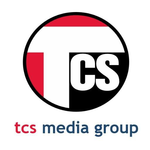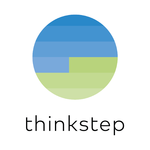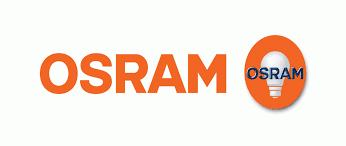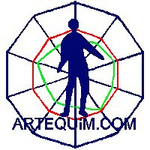Description

EMS

TCS CRM
Comprehensive Overview: EMS vs TCS CRM
EMS Overview
a) Primary Functions and Target Markets:
EMS (Enterprise Management Software) is a broad category that includes a plethora of software solutions designed to help businesses manage various organizational processes. However, it's worth noting that EMS isn't a specific product from a single vendor. Often, it's associated with companies offering solutions like ERP (Enterprise Resource Planning), CRM (Customer Relationship Management), SCM (Supply Chain Management), and other enterprise-focused software.
-
Primary Functions:
- Integration of various business processes into a single framework.
- Automation of routine tasks and enhancing operational efficiency.
- Providing robust analytics and reporting capabilities for informed decision-making.
-
Target Markets:
- Medium to large businesses, especially those with complex operations across multiple locations and needing a centralized system for managing operations.
- Industries like manufacturing, retail, healthcare, and logistics.
b) Market Share and User Base:
Since EMS refers to a category of software, not a singular product, its market share is distributed among many vendors such as SAP, Oracle, Microsoft Dynamics, and Infor. The user base extends globally, with significant adoption in regions with large enterprises seeking comprehensive management solutions.
c) Key Differentiating Factors:
- Variability in feature sets across different vendors.
- Scalability based on specific enterprise needs.
- Industry-specific customizations and vertical solutions.
TCS CRM Overview
a) Primary Functions and Target Markets:
TCS CRM (Tata Consultancy Services Customer Relationship Management) is a CRM solution designed to manage customer interactions, sales cycles, and marketing strategies effectively.
-
Primary Functions:
- Sales force automation, lead and opportunity management.
- Customer service and support management.
- Marketing campaign management and analytics.
-
Target Markets:
- Businesses of all sizes looking to enhance their customer relations.
- Industries include banking, financial services, retail, telecommunications, and more.
b) Market Share and User Base:
TCS is a major player globally in IT services, but in the CRM space, it competes with established leaders like Salesforce, Microsoft Dynamics, and Oracle CRM. TCS CRM's market share is smaller compared to these giants, but it leverages its strong consulting services to increase its footprint, particularly in regions where TCS already has a strong presence.
c) Key Differentiating Factors:
- TCS’s strong delivery and support network, owing to its broader IT services footprint.
- Customization options that align with TCS's comprehensive IT service offerings.
- Integration capabilities with other enterprise systems, both in-house and third-party, enhancing cross-functional utility.
Comparative Analysis
Overall Market Share and User Base:
- EMS solutions, due to their encompassing nature, have a larger aggregated market share when combined across various vendors compared to TCS CRM alone.
- TCS CRM, while part of a globally recognized company, has a niche segment and typically serves as part of larger digital transformation projects.
Key Differentiating Factors:
-
EMS:
- Broad application scope and integration capabilities.
- Established competition among reputed vendors offering end-to-end enterprise solutions.
-
TCS CRM:
- Utilizes TCS’s vast IT services expertise to integrate and customize CRM solutions.
- Strong service-oriented approach, which is a hallmark of TCS’s global operations.
In conclusion, while EMS offers a broader category of integrated solutions primarily targeting high-complexity environments, TCS CRM focuses on enhancing customer management and aligning with its larger suite of IT services. The choice between pursuing an EMS solution or a dedicated CRM like TCS CRM would primarily depend on the specific needs of the business, the scale of operations, and the industry sector involved.
Contact Info

Year founded :
1967
Not Available
Not Available
United Kingdom
Not Available

Year founded :
Not Available
Not Available
Not Available
Not Available
Not Available
Feature Similarity Breakdown: EMS, TCS CRM
When comparing EMS (Enterprise Management System) and TCS CRM (Tata Consultancy Services Customer Relationship Management), it's important to note that both systems, while designed to manage organizational processes, have different emphases. EMS typically focuses on broader enterprise resource planning, while TCS CRM concentrates on customer relationship management.
a) Core Features in Common:
Both EMS and TCS CRM might share several core features due to the overlap in functional areas like sales and service. Common features include:
-
Contact Management: Both systems provide functionalities to maintain and organize customer and client data.
-
Sales Tracking and Automation: Each system typically offers features to automate and track sales processes, helping to streamline operations.
-
Reporting and Analytics: They usually have reporting tools that allow users to generate insights from data, providing vital information for decision-making.
-
Integration Capabilities: Both systems often support integration with other software solutions to ensure seamless operation across different platforms.
-
Task and Activity Management: They offer tools to manage tasks and activities, aiding in collaboration across teams.
b) User Interface Comparison:
The user interfaces of EMS and TCS CRM can vary considerably based on how they are deployed or configured. However, some general observations include:
-
EMS: Given its broader focus on comprehensive organizational management, the interface may seem more complex, offering a wide range of functionalities that cater to multiple departments. This can make the interface cluttered but powerful for power users.
-
TCS CRM: As a CRM-focused system, TCS CRM is likely designed with a cleaner and more straightforward interface, optimized for salesforce efficiency and customer interaction. It prioritizes features that are critical for managing customer relationships and sales processes, which could result in a more intuitive experience for users primarily in sales or customer service roles.
c) Unique Features:
Each system may have features that make it stand out:
-
EMS Unique Features:
- Comprehensive Resource Planning: EMS typically extends beyond customer management to include supply chain, finance, production, and human resources, offering a more holistic view of enterprise resources.
- Advanced Supply Chain Management: EMS might have sophisticated tools for managing inventory, logistics, and procurement.
-
TCS CRM Unique Features:
- Customer Engagement Tools: TCS CRM may offer advanced tools for customer engagement, enabling personalized communication and solutions that cater directly to enhancing customer experience.
- Industry-Specific Solutions: TCS is known for offering industry-specific CRM solutions, which cater to the unique needs of sectors like banking, telecommunications, and healthcare.
Both EMS and TCS CRM are robust solutions suited to different organizational needs, and the choice between them often depends on the specific business requirements and priorities of an organization. When evaluating these systems, it’s critical to consider the context in which they will be used, the required scalability, and how well they integrate with existing workflows and systems.
Features

Not Available

Not Available
Best Fit Use Cases: EMS, TCS CRM
EMS and TCS CRM are both robust solutions but serve different needs based on their unique features and capabilities. Let's break down their best-fit use cases, scenarios, and applicability across industry verticals or company sizes:
EMS (Enterprise Management System)
a) Best Fit Businesses/Projects:
- Manufacturing and Supply Chain Businesses: EMS is ideal for industries that require extensive resource planning, tracking, and management like manufacturing. It helps streamline operations, manage inventory, and optimize supply chain processes.
- Large Enterprises with Complex Operations: Due to its comprehensive nature, EMS is suited for large enterprises that need to integrate various business functions such as finance, HR, procurement, and production.
- Businesses Needing Regulatory Compliance: Industries that are heavily regulated, such as pharmaceuticals or food and beverage, benefit from EMS for maintaining compliance through detailed records and process standardization.
d) Industry Verticals or Company Sizes:
- Industry Verticals: It serves manufacturing, logistics, healthcare, and energy sectors effectively.
- Company Sizes: Primarily designed for mid-sized to large enterprises due to the complexity and cost of implementation.
TCS CRM (Customer Relationship Management)
b) Preferred Scenarios:
- Customer-Centric Businesses: TCS CRM shines for businesses that prioritize customer interaction, retention, and satisfaction, such as retail, banking, and telecommunications.
- Organizations with Diverse Customer Touchpoints: Ideal for companies that manage multiple sales channels and require a unified view of customer interactions and data.
- Businesses Pursuing Digital Transformation: TCS CRM supports businesses aiming to enhance digital engagement with clients, leveraging analytics for better customer insights and decision-making.
d) Industry Verticals or Company Sizes:
- Industry Verticals: Best for retail, financial services, telecommunications, and utilities where customer insights and engagement are key drivers.
- Company Sizes: It is adaptable for small to large enterprises, with scalable features that can be tailored based on the size and needs of the business.
Differentiation
- EMS is more of an overarching system designed to manage and integrate all enterprise resources, focusing on efficiency, compliance, and resource management.
- TCS CRM, on the other hand, is tailored to optimize customer management activities, improve sales effectiveness, and enhance customer relations through better data insights and engagement strategies.
Both EMS and TCS CRM complement each other in a comprehensive business ecosystem but address distinct aspects of business operations—one focusing on internal resource management and the other on external customer interaction and relationship building.
Pricing

Pricing Not Available

Pricing Not Available
Metrics History
Metrics History
Comparing undefined across companies
Conclusion & Final Verdict: EMS vs TCS CRM
To provide a conclusion and final verdict for EMS and TCS CRM, we need to analytically evaluate both products based on their features, pricing, scalability, user experience, integration capabilities, customer support, and targeted business needs. Here is a consolidated view:
Conclusion and Final Verdict
a) Best Overall Value
Determining the best overall value between EMS and TCS CRM depends significantly on the specific needs and priorities of the organization:
- EMS tends to offer comprehensive solutions for enterprises that require robust enterprise management capabilities, often excelling in areas like resource planning and operational efficiency.
- TCS CRM, on the other hand, focuses on delivering a powerful customer management platform with advanced analytics and integration options, often shining in handling customer relationships and sales processes.
For organizations prioritizing customer relationship management, personalized customer engagement, and powerful analytic capabilities, TCS CRM might offer the best overall value. Conversely, for businesses that need a holistic resource and operations management solution, EMS might be more advantageous.
b) Pros and Cons
EMS
- Pros:
- Comprehensive set of features for enterprise management.
- Strong resource planning and management capabilities.
- Scalable for growing businesses.
- Proven track record in diverse industries.
- Cons:
- Can be complex to implement and require substantial initial setup.
- May involve higher upfront costs.
- Could be overkill for smaller businesses with limited needs.
TCS CRM
- Pros:
- Excellent for customer relationship management with advanced analytics.
- Strong integration capabilities with various business tools.
- User-friendly interface and customizable dashboards.
- Typically more user-centered and adaptive to changing customer needs.
- Cons:
- May not cover extensive enterprise management outside CRM.
- Could require additional modules or customization for specific needs.
- Ongoing subscription costs can add up over time.
c) Recommendations for Users
-
Assess Your Core Needs: Organizations must identify their primary business requirements. If the focus is overwhelmingly on managing customer interactions and extracting insights from customer data, TCS CRM should be favored. For a wider organizational management solution, EMS is more appropriate.
-
Consider Scalability and Growth: Larger organizations or those anticipating rapid growth should consider which system can scale effectively with their evolving needs without significant downtime or re-engineering.
-
Budget and Resources: Evaluate both short-term and long-term costs, including the price of implementation, licensing, and ongoing maintenance. Ensure your choice aligns with your budget constraints.
-
Trial and Demos: Whenever possible, take advantage of demos or trial periods to experience the workflows, interfaces, and functionalities firsthand. This can provide invaluable insights into how each system might fit into your existing processes.
-
Consult Stakeholders: Involve key stakeholders in the decision-making process to ensure that the selected system caters comprehensively to department-specific needs.
The final decision should reflect a balance between organizational needs, growth plans, budgetary constraints, and the specific strengths of EMS versus TCS CRM.
Add to compare
Add similar companies



